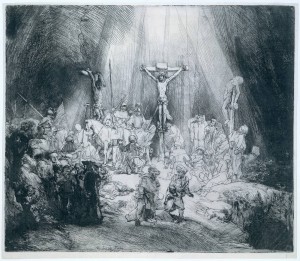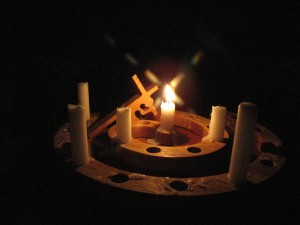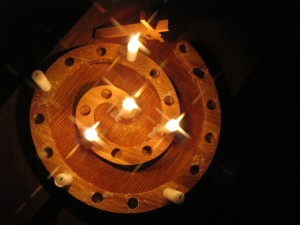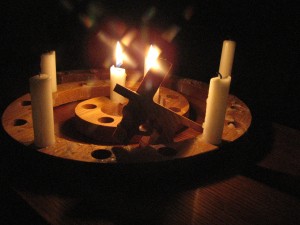To hear my blog post read aloud, just click the play button. If you’re reading this in an email, you may have to click here to hear the post on my site.
We become what we worship.
I’ve written of this before:
When we spend our lives focused on and chasing after power, money, sex, adoration from others, we become like those things. We become shallow, insatiable, discontent. Yet when we, here in this glorious temple of creation, spill our very lives in worship to God, we become like Him. We become joyful, content, full of peace.
We are, in the deepest places of ourselves, lovers. We are not primarily thinkers, we are not essentially believers, we are first of all imaginative, desiring creatures defined by what or who we love.
All of our thoughts and actions spring from what we desire, from our vision of what we see as the good life.
The secular world has this figured out.
Walk into any mall, step into any sporting arena, and you are immediately drawn into an experience that seeks to change you at your deepest level into someone who wears only Gap clothing or who is a die-hard Cardinals fan.
No one is holding classes on the reasons you should purchase from Gap or handing out pamphlets about the top ten reasons to root for the Cardinals. Rather, an immersive experience is created using all of our senses, an experience that sets in front of us a vision of a good life and then shows us how to pursue that life.
It is incredibly effective.
We in the Church, however, seem to be convinced that humans are primarily thinkers. Brains on a stick, if you will. We seem to think that if we can just teach the correct doctrines, if we can only put forth enough convincing arguments in favor of Christ, people will change their lives, our children will never leave the Church, and the world will fall to its knees in worship.
Clearly, this is not working.
What if we sought to discern not the essence of Christianity as a system of beliefs (or sumarized in a worldview) but instead sought to discern the shape of Christian faith as a form of life? ~ James K. A. Smith
We become what we worship.
The things that we do, the practices in which we participate, shape our desires and thus direct our thoughts and actions.
In other words, to become people of the Kingdom, we must practice being people of the Kingdom.
Lived worship is the fount from which a worldview springs, rather than being the expression or application of some cognitive set of beliefs already in place. ~ James K. A. Smith
If we want our children (and our own selves) to fall in love with Jesus, we must put practices into our days, our months, our years, that work to aim their desires toward God’s Kingdom. We must use all of our bodily senses to pursuade our hearts that God’s will done on earth is the best vision of the good life.
There is a reason God commanded the Israelites to celebrate all of those festivals throughout their year.
There is a reason the Church followed a holy calendar.
We see this happening some in the liturgies of our churches: the sounds of the music, the colors of the spaces, the feel of the baptism waters, the taste of the Eucharist, the scent of the incense in some faith traditions. These bodily experiences train us to be the humans God created us to be, to be lovers of God and lovers of each other.
Yet once a week for an hour and a half is not enough.
How often during the week do you shop or watch sports events? How many hours do you spend relaxed in front of the television or iPad?
We must put more of these practices into our days. We must weave God and His Kingdom all through our time and space in order to aim our desires, our children’s desires, toward the Kingdom.
Imagine.
Imagine praying with our families or friends multiple times a day.
Imagine opening our homes to others once a week.
Imagine serving with our families or friends regularly.
Imagine meeting with another family once a week to do life together.
Imagine following the Church holy calendar with your family or with a friend, adding sights, sounds, and tastes to the various feasts and celebrations as you follow the liturgical calendar.
Let the Spirit capture your imagination.
Make no mistake, this is a war. It is a battle for our desires, for our sacred imagination.
You only have to look around at how similarly Christians live compared to those who do not follow Jesus to know who is winning this war.
Let the Holy Spirit give you a vision for what life could look like when we are aware that we are lovers rather than thinkers. Allow Him to give you ideas for capturing your heart and your children’s hearts for Jesus.
Ask Him to help you weave practices into your life that aim your desires at their deepest level. Ask Him to help you avoid those secular practices that are currently shaping your desires.
We become what we worship.
We worship what we love.
Shape your life in a way that will aim your love toward God and His Kingdom.
The ideas in this post come from Desiring the Kingdom by James K. A. Smith (affiliate link)
Art credits: Busch Stadium photo by Rick Dikeman; shopping mall photo by Jakub Zasina; all cathedral photos by Kirk Sewell


























